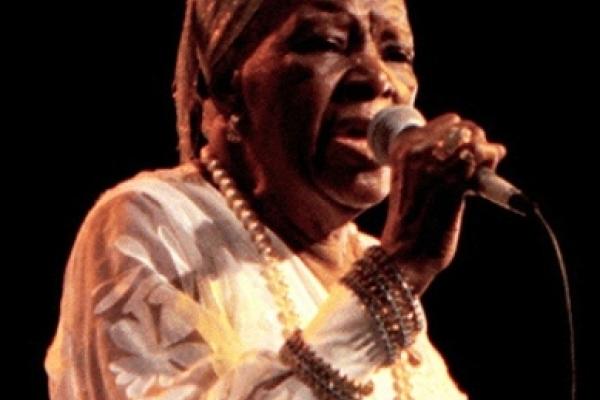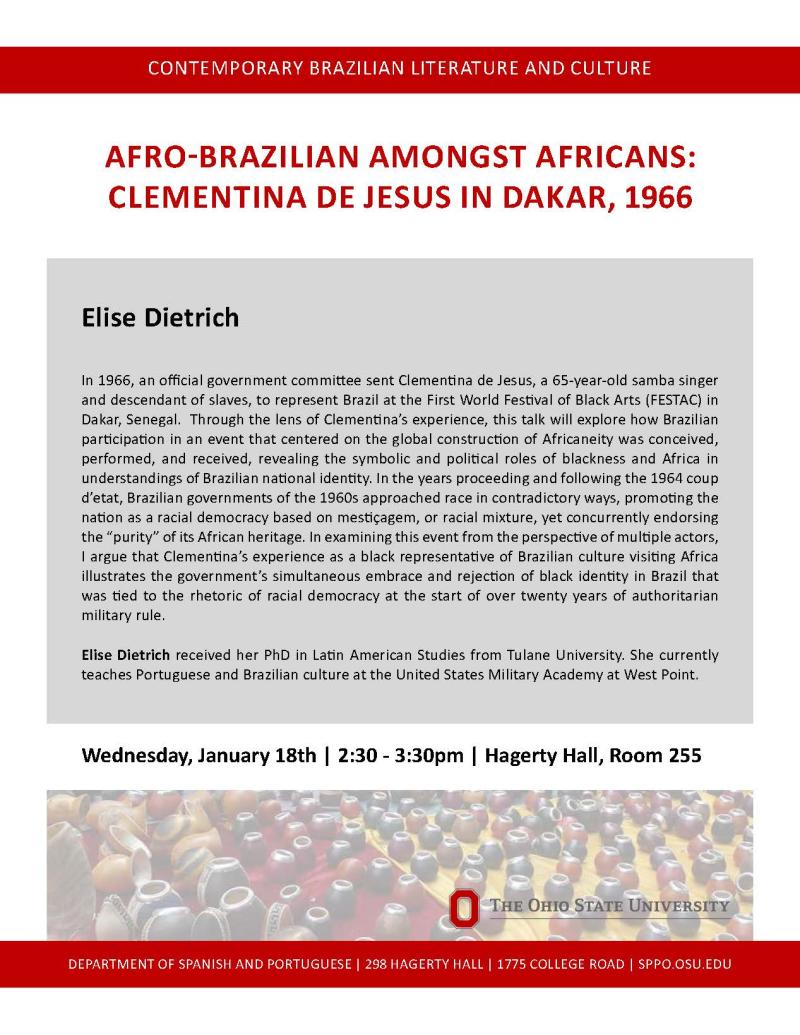
Elise Dietrich
In 1966, an official government committee sent Clementina de Jesus, a 65-year-old samba singer and descendant of slaves, to represent Brazil at the First World Festival of Black Arts (FESTAC) in Dakar, Senegal. Through the lens of Clementina’s experience, this talk will explore how Brazilian participation in an event that centered on the global construction of Africaneity was conceived, performed, and received, revealing the symbolic and political roles of blackness and Africa in understandings of Brazilian national identity. In the years proceeding and following the 1964 coup d’etat, Brazilian governments of the 1960s approached race in contradictory ways, promoting the nation as a racial democracy based on mestiçagem, or racial mixture, yet concurrently endorsing the “purity” of its African heritage. In examining this event from the perspective of multiple actors, I argue that Clementina’s experience as a black representative of Brazilian culture visiting Africa illustrates the government’s simultaneous embrace and rejection of black identity in Brazil that was tied to the rhetoric of racial democracy at the start of over twenty years of authoritarian military rule.
Elise Dietrich received her PhD in Latin American Studies from Tulane University. She currently teaches Portuguese and Brazilian culture at the United States Military Academy at West Point.
Elise Dietrich - Afro-Brazilian Amongst Africans: Clementina de Jesus in Dakar, 1966 flyer [PDF]

